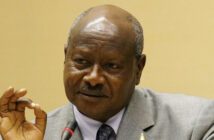For the very first time ever, Nigerian power production peaked at 7,001 MW, on September 12. A clear indication of growth in power generation and transmission in contrast to distribution.
This is according to the latest data released by the National Bureau of Statistics (NBS) which indicated that investments in transmission capacity are growing while generation is declining.
This situation has meant that the national grid that coordinates eight transmission regions with 183 substations from a control centre in Oshogbo has over 2000MW idle capacity as generation from Nigeria’s 25 power plants slows.
The NBS report also showed that in the three months ending June 2017, Nigeria’s 25 power plants generated a paltry 2,503MW of electricity and that current generation capacity hovers around 4,000MW.
Speaking recently at a forum, the Minister of Power, Works and Housing, Mr. Babatunde Fashola, stated that, “Under the Buhari Administration, the grid has expanded to 6,200 MW because we have completed transmission stations in places like Ikot Ekepene, Okada, Alagbon, Ajah, Katampe, Sokoto and awarded many more in places like Damboa, Pankshin, Osogbo, Kumbotso, Odogunyan to mention a few.”
“As at August 10, 2017, 6803MW was recorded as the current available generating capability, with a wheeling capacity of 6700MW by TCN, currently constrained by DisCos inability to take load,” the communique read.
“This is in line with incremental power policy with improvements from TCN improving the wheeling capacity from 5000MW to 6700MW.”
Commenting further, the minister said the Federal Government was doing its best to ensure improvement in electricity supply.
“Government has embarked on serious expansion of transmission capacity with some power plants already completed, while others have reached advance stages of completion,” he said.
He also assured support for any state willing to be involved in generation and distribution of electricity, adding that there was no monopoly in the business of electricity generation and distribution and that state governments and big companies could also involve in the business.
“Large power consumers like government and big manufacturing companies can engage in power supply business. All they need to do is to secure permit from the Nigerian Electricity Regulatory Commission (NERC),” he explained.
While Nigeria has installed generation capacity of 11,800MW comprising 1,400MW of hydro and 9,000MW of gas-fired power plants, available capacity ranges between 3000 to 5000MW. Huge generation capacity remains stranded due to gas supply constraints. Sabotage of petroleum export infrastructure in 2016 has further curtailed the supply of associated gas used in power production with the result that average operating capacity in early 2017 was only about 3.5 GW.




